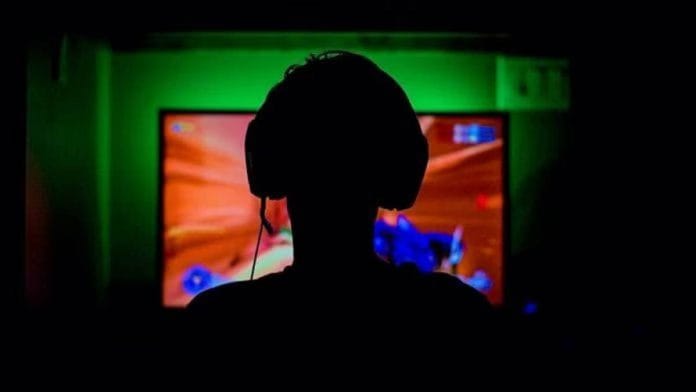New Delhi: From completely prohibiting “online money games”, including fantasy sports like Dream11, to promoting e-sports, like DOTA 2, the Promotion and Regulation of Online Gaming Bill, 2025 tabled in the Lok Sabha Wednesday proposes to alter the multi-billion-dollar online gaming industry.
It proposes to outlaw all online betting and gambling activities, online fantasy sports, online casino games, including poker and blackjack, and online lotteries.
The bill is understood to have been considered in light of not just gaming addiction among the youth, but also concerns over cross-border and inter-state operations by extremists facilitating money laundering and terror financing.
Notably, a Financial Action Task Force (FATF) report released last month had flagged that terrorists and extremists are increasingly using platforms for online gaming as a hunting ground for new recruits as well to raise and move funds.
Mumbai-based technology and gaming lawyer Jay Sayta told ThePrint that traditionally, there has been a difference between skill-based and chance-based games, and that any game played online, if it was a game of skill, was permitted so far, even if it involved money. Sayta has represented online gaming companies in courts.
“But this bill makes no difference between online games of skill and chance. It says whether it is a game of skill or chance, any game played for stakes or money or money’s worth is called an online money game, and there is a prohibition on such games, including endorsement, banking services, etc for them,” he said.
The bill, therefore, proposes a complete ban on any online game played with money or money’s worth, with the expectation of winning anything. This would impact all real money gaming apps, including Dream11, Rummy, Ludo, Winzo or Zupee.
The bill carves out an exception, allowing e-sports like Dota 2 or Counter-Strike, and online social games, like Candy Crush or Ludo, which are purely for recreational or educational purposes, and don’t involve money.
India has a patchwork of laws on the issue currently, with several states, including Karnataka, having enacted different laws on online gaming, and high courts having given different rulings on such laws. This is because gambling & betting is a state subject under the Constitution of India.
What the bill bars
The new bill intends to prohibit “online money games”, which allow users to deposit money in the hope of making more money, and online money gaming services.
According to the definition sought to be introduced in law, an “online money game” would include an online game—irrespective of whether such a game is based on skill or chance or both— in which users pay fees, deposit money, or other stakes, in expectation of monetary returns. Anybody offering online money gaming services can be punished with a three-year jail term or a fine of up to Rs 1 crore or both, according to the draft bill.
It also prohibits advertisements related to online money games in any media, purportedly including WhatsApp, or by social media influencers. Anybody who contravenes this can be punished with a two-year jail term or a fine of up to Rs 50 lakh or both.
Additionally, the bill prohibits banks and financial institutions from facilitating any transaction or funds towards payment for any online money gaming service. Violation of this provision allows for punishment of up to three years or a fine of Rs 1 crore or both.
Repeat offences can attract enhanced penalties, including imprisonment of three to five years, and fines up to Rs 2 crore.
The bill also allows for blocking access to unlawful gaming platforms under the Information Technology Act, 2000.
What the bill allows
The draft bill proposes to empower the central government to take steps to recognise e-sports as a legitimate form of competitive sport in India.
According to the draft bill, e-sports means an online game which may involve organised competitive events between individuals or teams, conducted in multiplayer format. These include games recognised by the National Olympic Committee or National Paralympic Committee or National Sports Federation or Regional Sports Federation. However, such an e-sport should not involve placing of bets, wagers or any other stakes by any person.
Several Esports tournaments have come up in the past few years, including the Commonwealth Esports Championship 2022, in which the Indian Dota 2 team won the bronze medal.
The bill also empowers the central government to take steps to recognise, categorise and register “online social games” and facilitate their development and availability for recreational and educational purposes.
“Online social game” may include an online game which does not involve staking of money or other stakes, or participation with the expectation of winning in return of money. Such games are offered solely for entertainment, recreation or skill-development purposes. The game may allow access through payment of a subscription or a one time access fee, as long as the payment is not in the nature of a stake or a wager.
The draft bill goes on to establish or designate an authority for recognition, promotion and development of e-sports and online social games.
(Edited by Nida Fatima Siddiqui)






